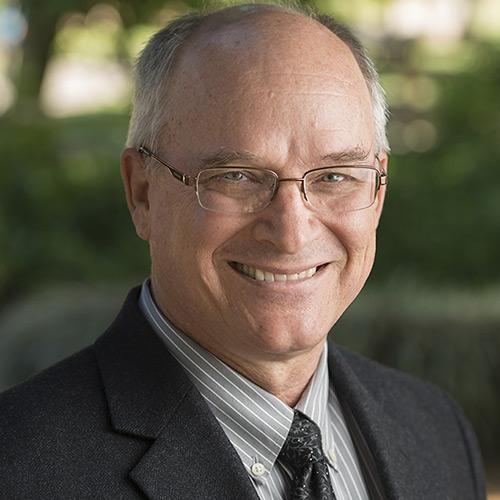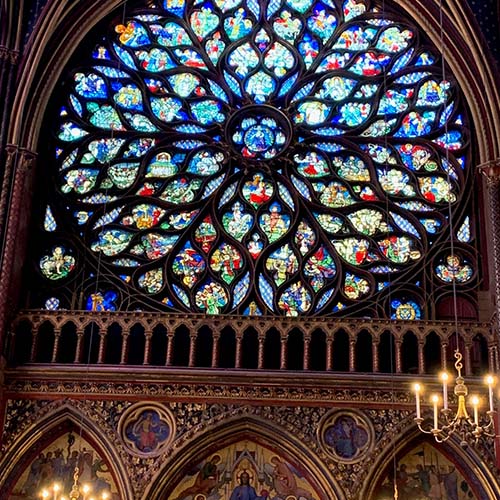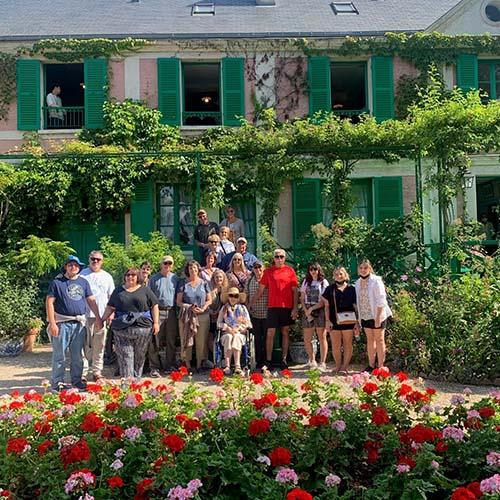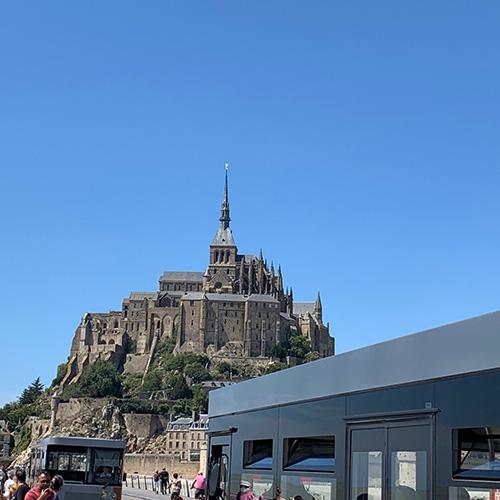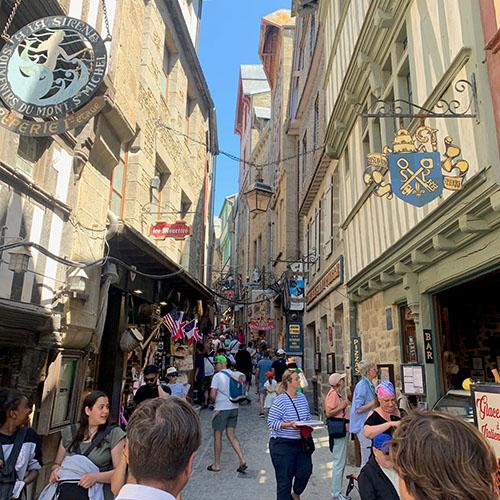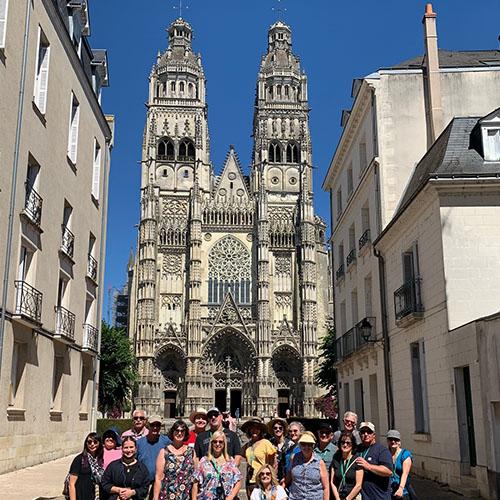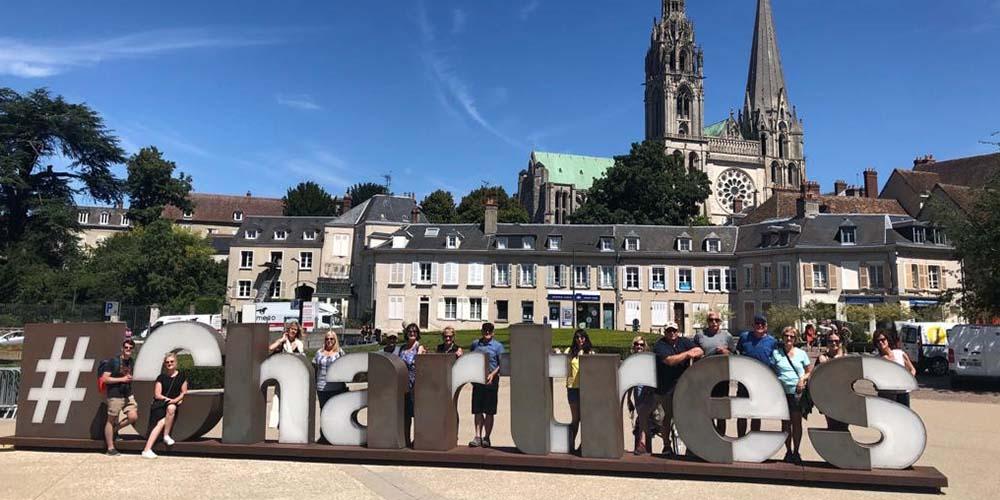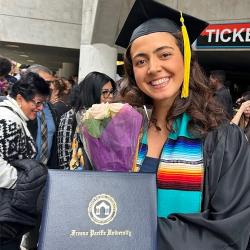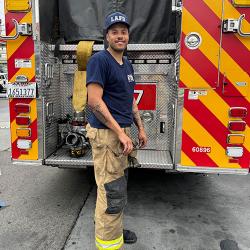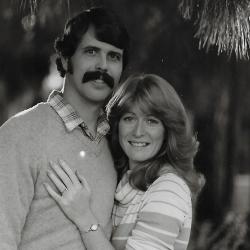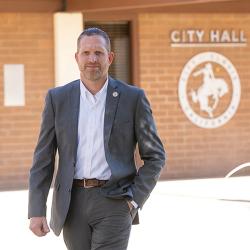Next, we were off to Rouen—where Joan of Arc met her end at the hands of the English and which was also a center of early French Protestantism. From its medieval streets we went to the harbor city of Honfleur for more exploration, and then toward Normandy.
Normandy almost requires silence during a visit, and everyone seems to instinctively understand why. We visited the American Cemetery, looked out over the beaches, walked past the gun emplacements, saw the bomb-created craters still on the hills, and offered quiet, unspeakable prayers.
From Normandy we traveled to the island monastery of Mont Saint-Michel. Along the way we stopped to view the Bayeux Tapestry. We even held a lighthearted contest to find unique depictions along its 200+ feet of embroidered storytelling and take photos of them—though I later learned from our tour guide that no photos were allowed.
The walk up to Mont Saint-Michel—from the landing through winding streets filled with souvenir shops, cafés and small museums—was not unlike what a medieval pilgrim might have experienced on their way to the holy site. This visit had special meaning for me personally, not just because it was a medieval site I had long wanted to see. Seventeen years earlier, we had visited the same site with our son’s high school French class, only to arrive at the top and find a small sign posted on the door: “Closed due to strike by French monument workers.”
Our next stop was a couple of days in the old walled city of Saint-Malo—another port city and home of the French explorer of Canada, Jacques Cartier, as well as unnamed pirates and privateers who harassed other nations’ fleets for France. We walked the walls, explored monuments and churches and enjoyed the shops and restaurants. Saint-Malo is now a vacation destination for Parisians.
After our rest in Saint-Malo, we headed back east and south to the Loire Valley and the city of Tours, an old historic center (dating back to the 500s and earlier). There we had cooking lessons (in France, of course), and from Tours we visited three châteaux. Two of the most popular were Chenonceaux and Chambord—both hunting and vacation palaces for French monarchs. The third was much smaller: Château du Clos Lucé in Amboise, the home provided to Leonardo da Vinci by King Francis I. There we walked the gardens, saw an exhibit of paintings—particularly one of St. Jerome from an ancient church—and viewed models of da Vinci’s imaginative inventions.
